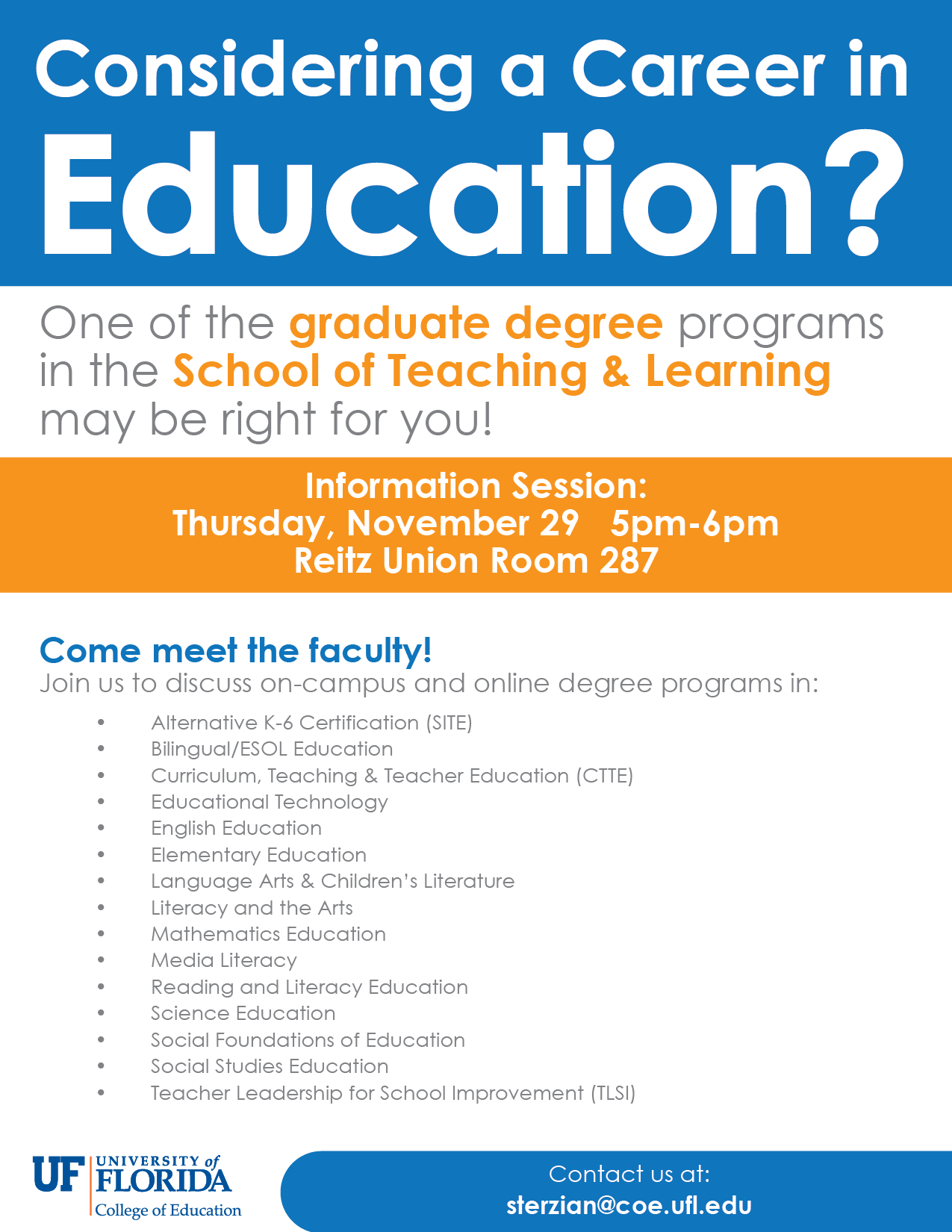![IMG_0170]() Julie Brown, a UF doctoral fellow in curriculum and instruction, has been named as one of six Jhumki Basu Scholars by the National Association for Research in Science Teaching’s Equity and Ethics Committee.
Julie Brown, a UF doctoral fellow in curriculum and instruction, has been named as one of six Jhumki Basu Scholars by the National Association for Research in Science Teaching’s Equity and Ethics Committee.
Brown is a former high school science teacher and P.K. Yonge Developmental Research School’s elementary science coordinator.
At UF’s College of Education, Brown researches and designs professional development for secondary science teachers as a means of enhancing their ability to provide culturally responsive and inquiry-based instruction. Her STARTS – Science Teachers Are Responsive To Students – professional development model, for example, is designed to empower science teachers in high-need, urban school districts.
Brown’s professional development model is incorporated within a major partnership being forged between UF and the School District of Palm Beach County. It is part of an ambitious effort to position the school system as a national leader in the recruitment and retention of master teachers in the STEM subjects who can lead their students to the highest levels of academic success.
STARTS has a cadre of Fellows (participating teachers) from five high schools in Palm Beach County that have been diligently working to make a difference in their students’ science achievement. As the Fellows participate in STARTS, they have been developing as teacher leaders in multiple capacities. Through their work in face-to-face Saturday Collaboration Sessions and online course tasks, the Fellows have already completed an entire Lesson Study cycle and are systematically studying student learning to connect these findings directly to their instruction. The Fellows will continue to build on this knowledge as they soon embark on a full Curriculum Topic Study, which facilitates their construction of innovative science instructional materials designed specifically for their students and tightly coupled with state and national science education standards. In addition to the design and implementation of these materials, STARTS Fellows will construct a case study around a select group of students to better understand the impact of their teaching on students’ science achievement and attitudes over time. Aiming to transform science teaching on a large scale through Palm Beach County, the Fellows will present their work in the upcoming Palm Beach Learning Showcase.
“Science education must be accessible to all students,” Brown said. “Increasing culturally-responsive science education’s presence on a wide scale begins with teacher preparation.”
The Basu Scholars Program supports and nurtures promising young scholars who promote social justice. The program also provides scholars with a $700 research scholarship.











 Julie Brown, a UF doctoral fellow in curriculum and instruction, has been named as one of six Jhumki Basu Scholars by the National Association for Research in Science Teaching’s Equity and Ethics Committee.
Julie Brown, a UF doctoral fellow in curriculum and instruction, has been named as one of six Jhumki Basu Scholars by the National Association for Research in Science Teaching’s Equity and Ethics Committee.